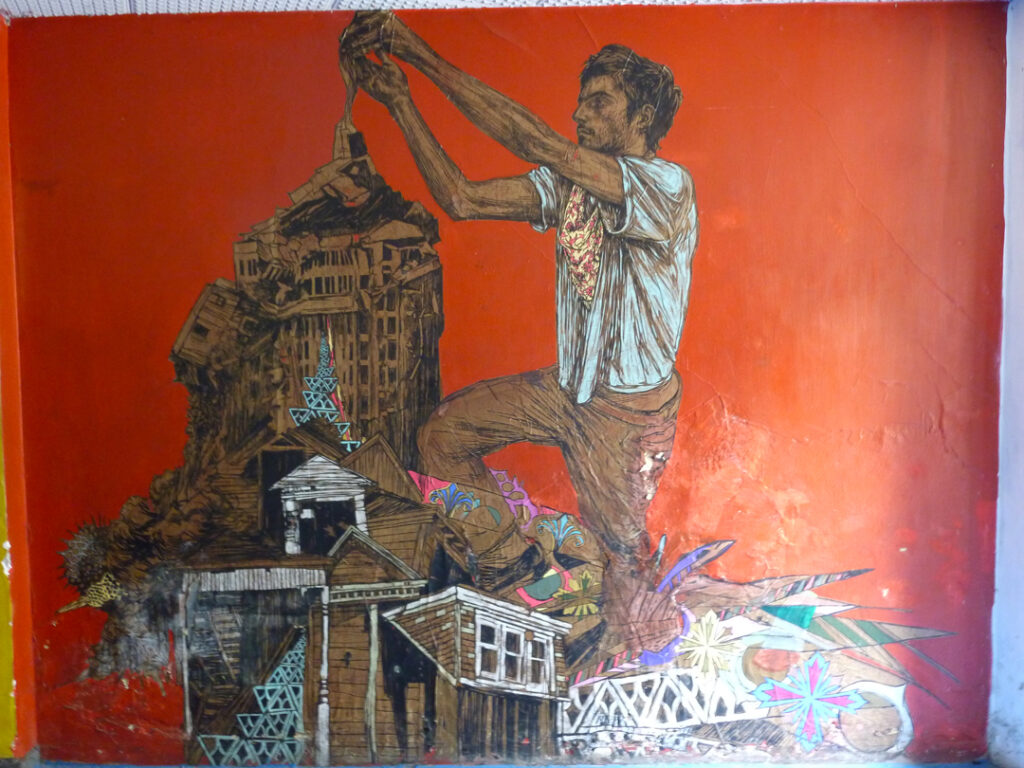Welcome to the blog Co-Designing Publics international research network!
The purpose of this research network is to examine and reveal how publics are co-designed in cities around the world to create a far more equitable, fair and democratic city for all, especially for those people who are marginalised. Design–with its direct engagement in the materiality of urbanism and its inherently creative and transdisciplinary thinking–is singularly poised to discover and articulate such radical imaginaries for the public realm and the city it helps delineate. Our research project, entitled “Co-Designing Publics: [Re]Producing the Public Realm via Informal Urbanisms in Cities of the Global South,” lies at the intersection of two disciplines that the UK Arts and Humanities Research Council [AHRC] funds: design and international development. At this intersection, we investigate the concept of “co-designing publics” to gain a deeper and more nuanced understanding of existing practices as well as to develop future modes of transformative urban practice.
Together, each of the case studies in Bengaluru, Cali, Cape Town, Jakarta, Phnom Penh, and São Paulo contribute insights into what enables or obstructs the co-design of vibrant publics in the public realm of cities. Through this collaborative and interacrtive process, we engage in dialogues to help re-theorise what the public realm constitutes from the perspective of both physical space and political process, and demonstrate how these two perspectives are in fact porous and interdependent. The research aims to make important and influential contributions to the theoretical and empirical literature on urbanism. Such theoretical contributions require new types of empirical evidence and new ways of collecting and analysing that evidence that are both comparative and collaborative, and that simultaneously challenge and enrich dominant EuroAmerican centric perspectives.
In the current era of constant precarity and widespread vulnerability [e.g., COVID-19 pandemic], highly creative processes of addressing urban challenges are increasingly needed. Thus, the co-design of publics through informal urbanisms can be better understood in terms of how such processes actually occur, how they deal with precarity and what their future potential is for designing the transformation of cities. This problematic relates directly to AHRC priorities, by investigating the values which underpin who we are as individuals and how we undertake our responsibility to our society. The problem is that the public is often conceived as either physical or political, when in fact these aspects are porous and interdependent. In addition, the weight of much research and policy responses is inordinately focused on top-down views of design, with insufficient attention paid to the ways in which design is actually a process of everyday experimentation and change at the grassroots level. This project flips that narrative on its head and views design from the bottom up, a perspective that is built into this project’s methodological approach.
The ultimate theoretical goal of co-designing publics [i.e. creatively mobilising and organising groups of ordinary citizens around particular and spatially-grounded issues of concern and or desire] is therefore radical democracy, whereby a path towards social justice might be opened towards emancipation, which can be understood as an awakening, a rediscovery of power that is deeply rooted in processes of mobilisation and transformation. Such is the promise of co-designing publics via informal urbanisms in the production of the public realm. The goal in terms of our practice of research is to build a strong research network of international scholars in partnership with grassroots organisations in cities of the global south, such that we can unearth valuable insights and develop potent future co-design possibilities in the global south as well as their creative and translatable lessons for cities of the global north.
We hope to update you in this blog from time to time about our activities. Stay tuned!
